Classical Audiophile Vinyl Reissues - Past, Present, and Future: Part 1
An In-Depth Look at Where we've been, and Where we might be heading...
It’s been a little more than a year since Deutsche Grammophon launched its series of Original Source, AAA-mixed, mastered and cut vinyl reissues, and it’s fair to say that the ongoing success of these records - both aesthetically and commercially - has completely changed the landscape for the classical music-loving audiophile, be he or she a longtime collector and enthusiast, or a comparative newbie to the classical genre. For any record company or reissue house that has been paying attention, it has been a signal that classical audiophile reissues done right (and I emphasize this point emphatically), can succeed in the marketplace, alongside the myriad of audiophile jazz and rock reissues that are clamoring for customers’ cash.
The welcome success of the DG Original Source Series has not happened in a vacuum. There is a long history of classical music getting the audiophile reissue treatment on vinyl. Let’s face it: classical has always been something of a niche area within the audiophile marketplace. Having said that, though, it was with classical music that the great record labels of the past - RCA Living Stereo, Mercury, British Decca, EMI - established their audiophile credentials long before customers thought in “audiophile” terms. Recording classical music - be it a solo piano, vocal soloist, orchestra or choir - remains the ultimate challenge for engineers intent on capturing sound for the home listener in both a realistic and compelling manner.
But what sets the DG Original Source Series apart is that it is the first time, to my knowledge, that a record label itself (in collaboration with the closely DG-affiliated Emil Berliner Studios), has sponsored a fully-fledged campaign of AAA, master tape sourced vinyl reissues that brooks no sonic compromise. All the other audiophile reissues of the past and present have emanated from independent boutique labels like Chesky, Mobile Fidelity, Classic Records, Speaker’s Corner, Analogue Productions, King Super Analogue and Cisco (now Impex) etc. True, there have been past flirtations by the majors with audiophile pressings - for example, CBS’s excellent though limited series of Half-Speed Mastered reissues of titles from their 1970s catalogue - but there’s never been anything on the scale of the DG OSS records (RCA had a ".5" 1/2 speed mastered series that TAS founder Harry Pearson famously denigrated as providing half the music_ed).
And not only has the DG series been a triumph technologically and aesthetically, literally bringing the fabled label’s treasure-house of a catalogue back to a sonic life we never knew it had, it has also been sufficiently successful commercially that the series has paid for itself and made enough profit that it will hopefully continue for the foreseeable future.
Therefore one imagines that other purveyors of fine classical music with deep catalogues of legendary recordings - ie. Universal label mates Decca/Philips, plus RCA/CBS/Sony, Warner (formerly EMI) to name but a few - might be eyeing the Original Source Series with a certain amount of envy, and thinking - “We could do that!”
Well, I answer, yes you could, and, more to the point, yes you should. Because clearly there is a market for these records, and you can make money doing the right thing: which would be to honor your catalogue and your company’s heritage by giving listeners something they crave - legendary recordings and performances in top-notch sound.
BUT - and here’s the rub - will they do it correctly? Will they make the substantial investment of time, money and expertise needed to make these records sound the way they are supposed to sound?
Alas, recent history suggests maybe not, as witness the literally dozens of digitally sourced vinyl reissues of vintage recordings you will find in the catalogues of the majors, now often sitting un-bought in literal and virtual record bins. It is impossible for an outsider like myself to say whether the errors of judgment leading to this misguided approach to reissuing legendary analogue recordings from digital files derives from purely commercial considerations, laziness or ignorance - I suspect some combination of - or all - of the above. Yes, it is cheaper to pay a faceless engineer to master a record from a digital file rather than get an expert like Ryan K. Smith or Kevin Gray to source and master all-analogue from an original master tape. Yes, it is entirely possible to ignore years of bad reviews and the evidence of one’s own ears by, for example, choosing Abbey Road to cut your reissues (they can work either from tape or files). Did an Abbey Road (digitally sourced) cut ever sound more than merely decent, let alone essential? Unfortunately, after dropping good coin on a couple of rock/pop reissues cut by Abbey Road some years back, I gave up. Until I had to listen to their work on recent Decca classical reissues for reviews on this site - more on this later on.
These misguided decisions to master vintage analogue recordings from digital files with less experienced engineers were made by someone, and the result is a lot of unsold records of masterful, legendary performances and recordings sitting in literal and virtual record racks for months - and months (if my experience at Amoeba or the online retailers is anything to go by).
And those records are still sitting there: check out the digitally-sourced vinyl reissues of the Mercury catalogue from a few years back. The old AAA-mastered Classic and Speaker’s Corner reissues of Mercury titles fetch decent to high bucks on the used market, and rightfully so. These newer “cut from digital” LPs (some even done by EBS about as well as you’d expect under the sonic limitations imposed by the label’s choice of mastering source) ain’t going anywhere. What a tragedy - not just for the potential listener (myself included), but also for the label that threw away both its investment and its credibility in the false belief that its potential customers wouldn’t notice the difference.
We do.
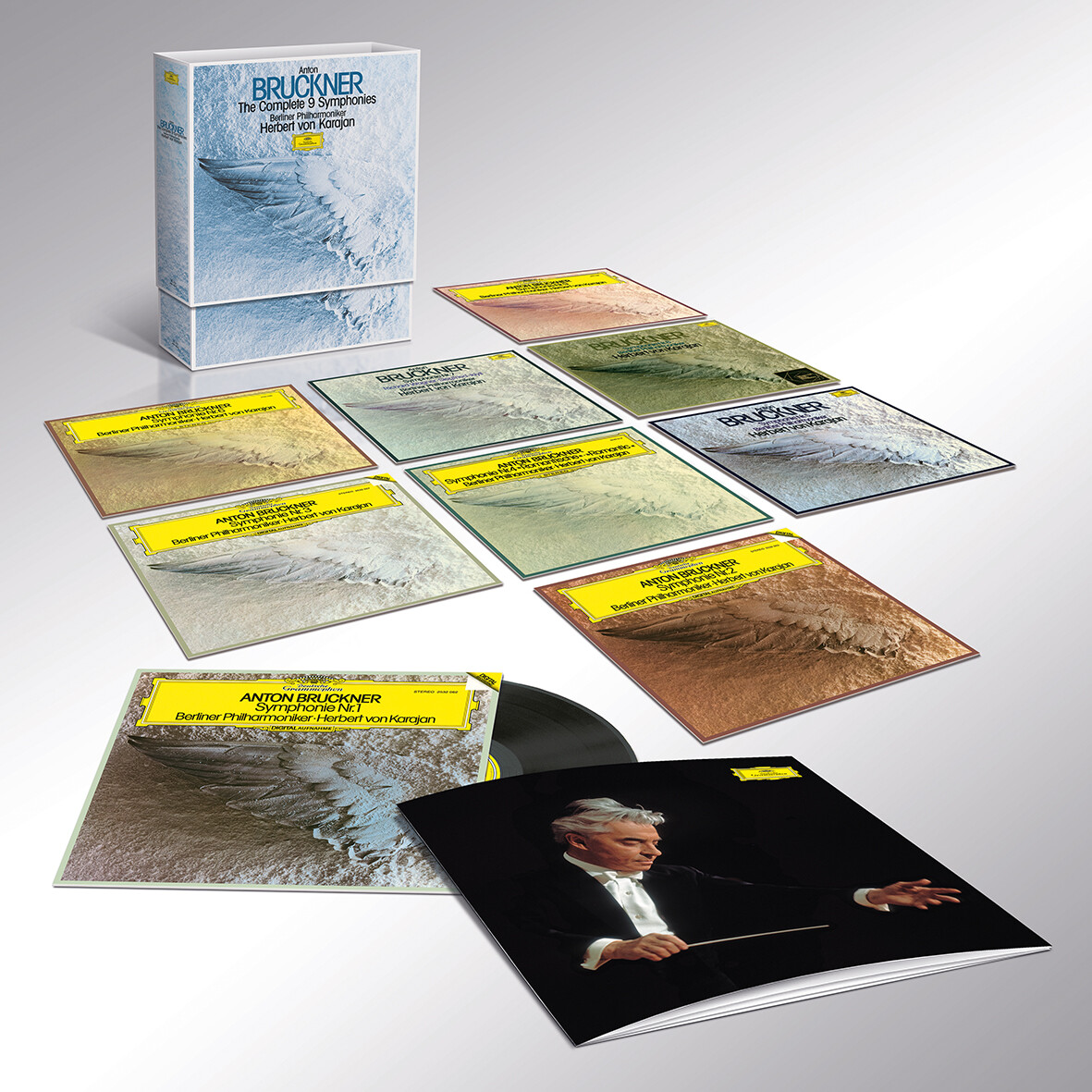
When it came time for Emil Berliner Studios to mix, master and cut the recent monumental Karajan/Bruckner Symphony cycle from 8-track analogue - but also flawed early digital - masters, the necessity of designing and building new bespoke equipment on top of what they had already invested for mastering the 4-track tapes of earlier releases in the Original Source Series cost more than three times what was anticipated. But DG and EBS remained committed to the project, to the notion of presenting Karajan’s benchmark cycle complete, and the end results were spectacular, with the digitally sourced symphonies sounding way more than acceptable. The equipment and technical knowledge acquired will now be in place for mastering all those other 8-track masters from DG’s 1970s catalogue (and even, potentially, its 80s digital catalogue): a drool-inducing prospect for any classical collector or more casual classical passer-by.
So imagine now if Decca/Philips and/or EMI/Warner were to say: “Yes, we can do that too: we can go back into our equally legendary back catalogues and make these titles available to those same people who are dropping good coin on the DG Original Source Series”.
Hallelujah!
But tired old cynic that I am, I fear that sentence might swiftly be followed by:
“But do we really need to spend all that money? Are there ways in which we can cut corners yet still sell the records?”
Because you know it is highly likely that someone at the label will think that. And then say it out loud. And then act on it. That seems to be the increasingly default thinking for most executives in large conglomerates who are more focused on the bottom line than creating a product of intrinsic worth; in this case, an executive who has never engaged with a beautiful AAA-cut record on a halfway decent sound system compared to its pale-faced cousin cut from digital files. (Prove me wrong - Universal and Warner!)
If you haven’t dropped the needle on a good AAA cut, even on a moderate system, and experienced that uncanny emotional connection to the recording and the performers, then you simply do not know how music, and musical history, can come alive in your home, right in front of you. It’s uncanny. You can literally step back in time to be in the presence of, say, legendary violinist Jascha Heifetz, as in Impex’s recent spellbinding reissue of The Lark...
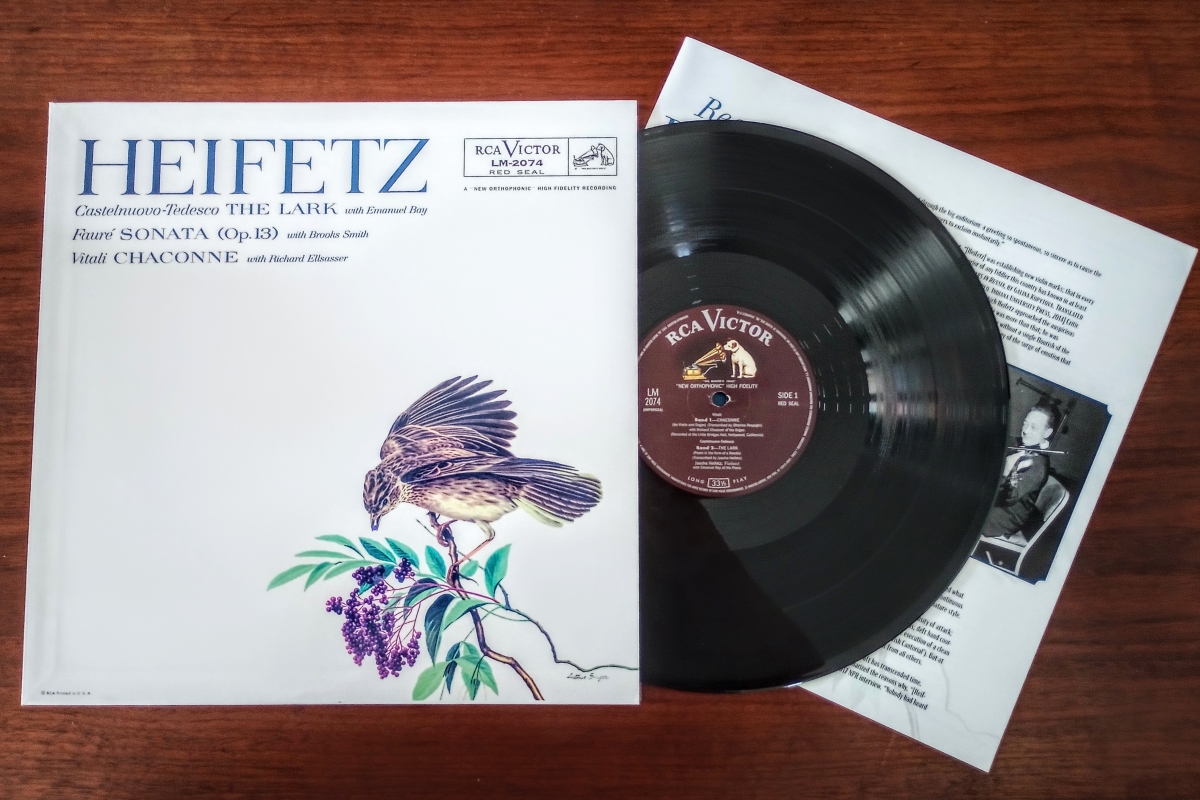
... Karajan and the Berlin Philharmonic in the Philharmonie c.1976 (the DG OSS Bruckner set); guitarist Narciso Yepes playing Rodrigo with Ataulfo Argenta and the Orquesta Nacional de Espana in 1957 (from Alto Analogue’s exquisite Ataulfo Argenta Edition) - to name just a few of myriad examples of classical vinyl reissues done right.
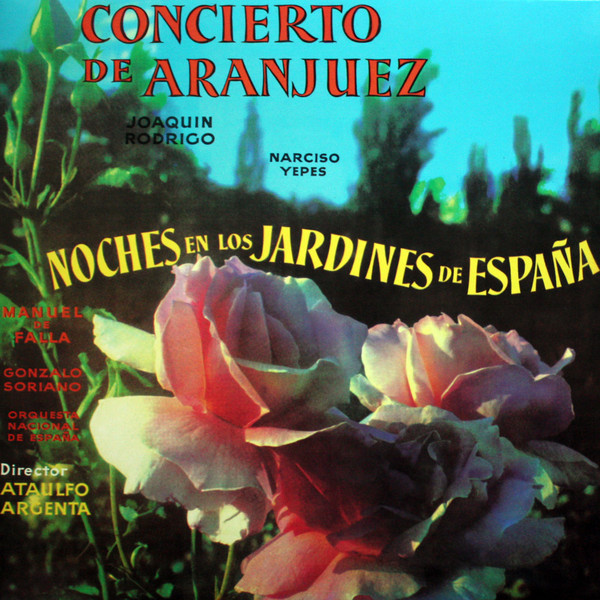
Now this compromised approach to producing true audiophile-quality vinyl reissues is not necessarily the thinking of the hands-on producers who actually shepherd these reissues. But by going ahead with a digitally-sourced reissue when AAA is viable, albeit more expensive, to produce, are they not somehow betraying the whole raison d’ětre for the catalogue existing in the first place? Which is to honor the accomplishments of the original performers, the engineers - and the label in recording them in the first place - by presenting them to the listener in the best sound and presentation possible?
Let’s be honest. You the reader, the listener, do know from the recent history of some of these labels and their vinyl reissues that the one thing these labels have NOT done is prioritize the need - nay, the necessity - to master analogue tapes to vinyl purely in the analogue domain whenever possible. (There are clearly exceptions dictated by deteriorating master tapes). Classical collectors know and hear the differences, and vote with their wallets.
At this moment in time it feels like there is (I believe and hope) some momentum in the classical reissue market. There is the distinct possibility of record labels other than DG - seeing the success of the Original Source Series - reissuing their legacy on vinyl to the same high standards of aural and physical presentation to a newly enthused classical listenership. Given that possibility, this seems like a good moment to consider what has gone before - what worked, and what didn’t - in the classical vinyl reissue market.
As in all things, history is a great teacher if you care to pay attention to it. And there are definitely lessons to be learned from the history of classical audiophile reissues for any record label thinking of following in DG’s footsteps.
So let’s consider that history…
THE PAST
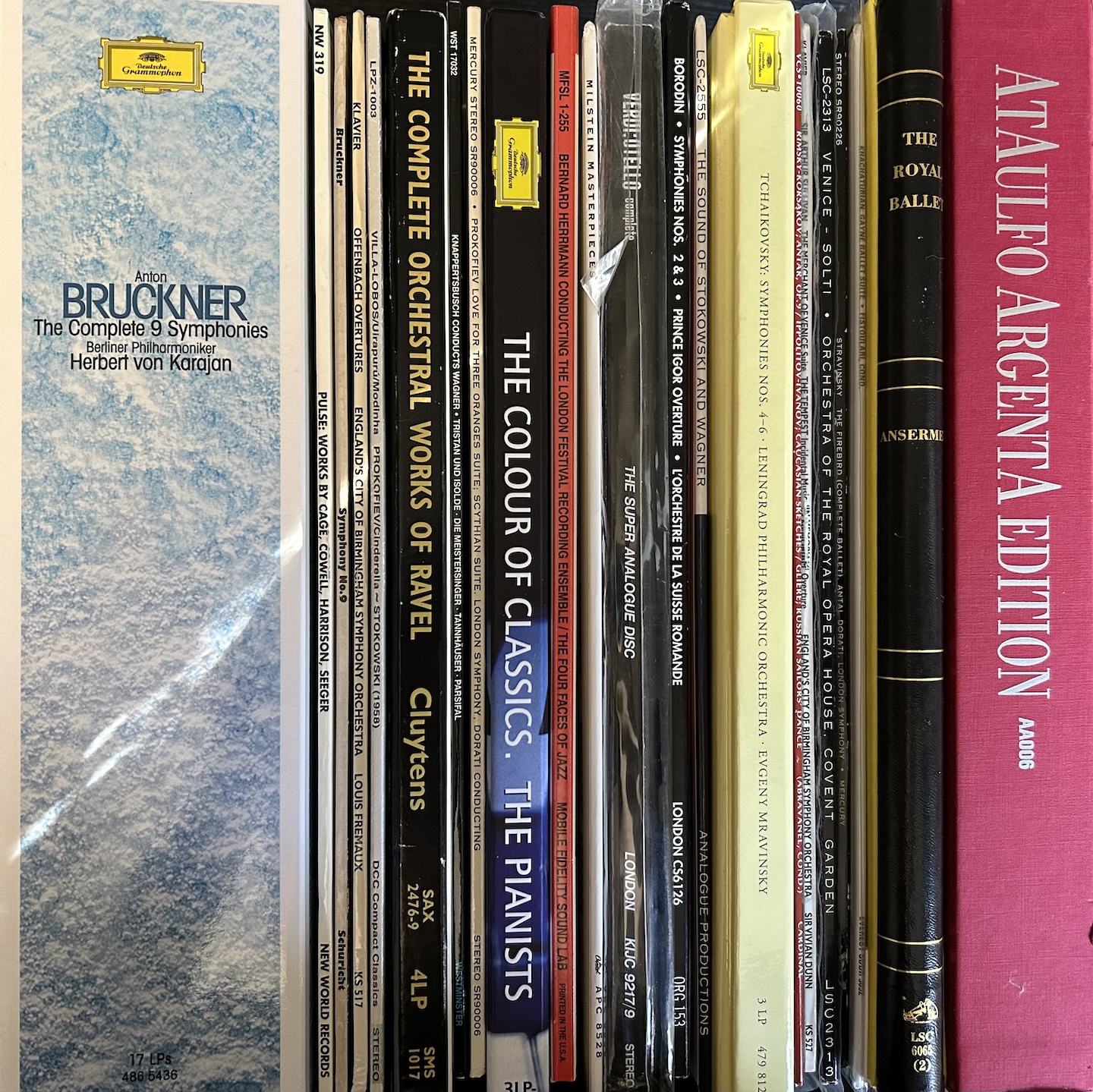 A Selection of Audiophile Reissues from my own Collection
A Selection of Audiophile Reissues from my own Collection
My own history with what might be considered “audiophile” records - be they quality reissues or original pressings - didn’t really begin until I fully realized vinyl was a superior carrier medium in and of itself. Growing up in the UK, I simply bought records in the 1970s and 80s because that was how you bought music. Little did I know that my UK OGs of Decca, EMI and numerous pop and rock albums would be considered desirable to collectors decades later. (I tended to avoid CBS and RCA releases because the sound, even on the equipment of the time, was noticeably inferior; like every other classical enthusiast, I still bought many DG releases because they actually sounded pretty good on the stereos of the time - with dead quiet vinyl - and the performances were very good indeed. It was only as my equipment got better that I realized the sonic shortcomings of DG pressings too).
Like most of my generation, I fully embraced CDs, and my records sat neglected for a decade. Fast-forward to the mid-90s, now living in Los Angeles, my wife and I both in graduate school. I decided to sell my collection for extra cash. I got it valued but something stopped me from pulling the trigger. Finally my wife said I shouldn’t do it - these records had been a big part of my life since I was 10, and she could tell something did not feel right about selling them. Boy, do I owe her.
Not long after that I happened upon a neighbour’s copy of Stereophile magazine, and was astonished to learn how highly prized vinyl was in the audiophile community, and not just by reading MF’s monthly column (which I was soon scouring for information on the best reissues to acquire). I tracked down a used Rega P3 that had been thoroughly overhauled, plugged it into my modest system, popped on one of my old Decca records - and was astonished.
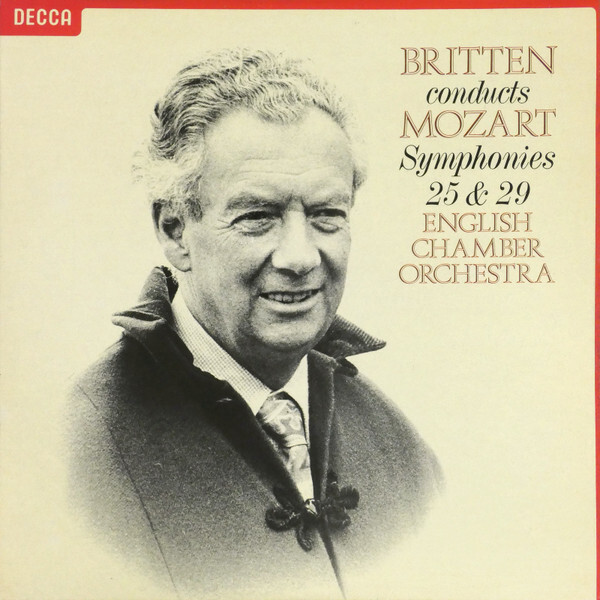 One of the first records I played on my newly-acquired Rega P3 turntable - still a treasured album, recorded by the great Kenneth Wilkinson in the Snape Maltings concert hall
One of the first records I played on my newly-acquired Rega P3 turntable - still a treasured album, recorded by the great Kenneth Wilkinson in the Snape Maltings concert hall
Thus began my vinyl rediscovery (bordering on addiction) and audiophile journey. I subscribed to Stereophile, The Absolute Sound, and Listener magazines (the latter exquisitely written by the much-missed Art Dudley). I picked up old and new copies of the original print version of this site. My equipment slowly evolved into a true audiophile system.
It was around that time - 1997 or so - that I wandered into the old Tower Records on Sunset Boulevard and there, in the cut-out bins, found a slew of the Classic Records reissues of the RCA Living Stereo catalogue, all priced to clear at around $15 each.
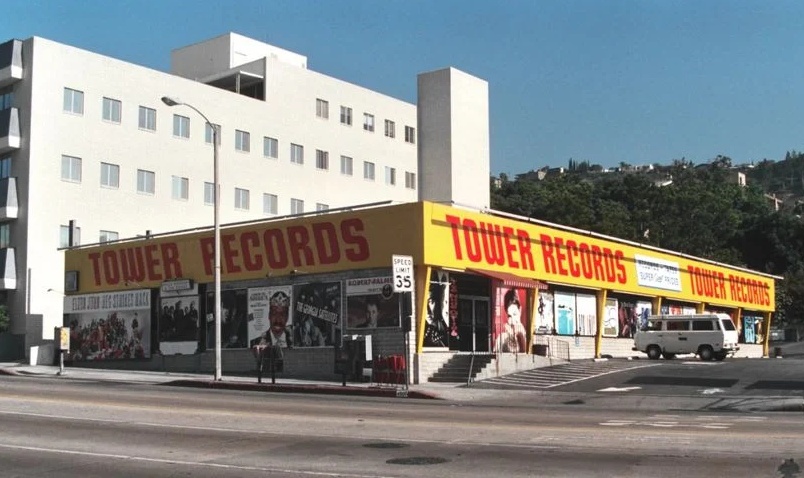
By this time I’d read enough to know about these reissues. To be honest, the Living Stereo catalogue had not been on my radar at all growing up in the UK, but now I was fully aware of how revered these LPs were, and these reissues had gotten excellent reviews. I picked up a handful and took them home for a spin. I’d never heard records sound quite like that! Over the next months Tower put out pretty much the whole Classic Records Living Stereo catalogue into the half-price bins, and I grabbed them all.
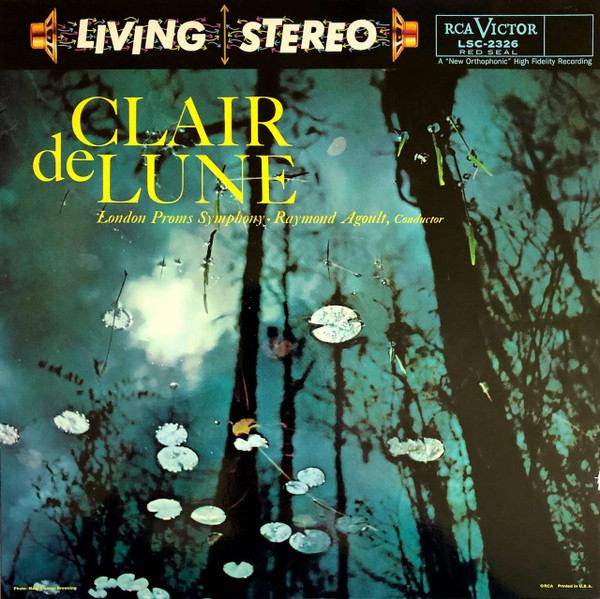
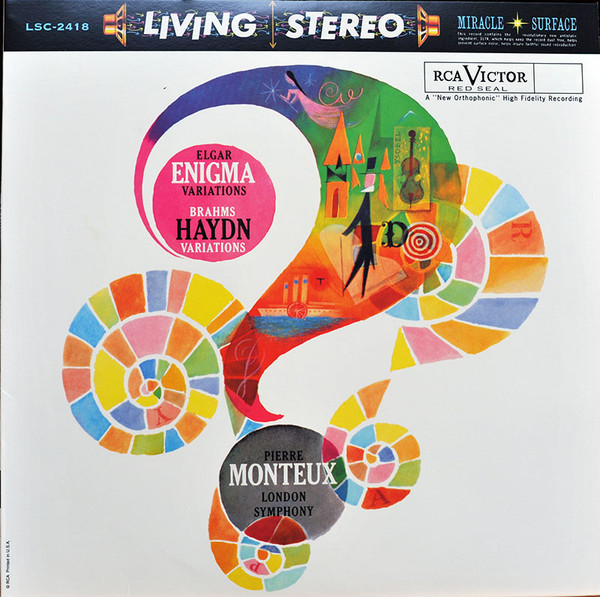 Two of my favorite Classic Records Living Stereo reissues - alas not also reissued by Analogue Productions (...please, Chad, please...)
Two of my favorite Classic Records Living Stereo reissues - alas not also reissued by Analogue Productions (...please, Chad, please...)
I was hooked. Thereafter I bought every Classic Records reissue of the Mercury catalogue too, their handful of CBS reissues, and whatever else caught my eye in jazz, rock and pop.
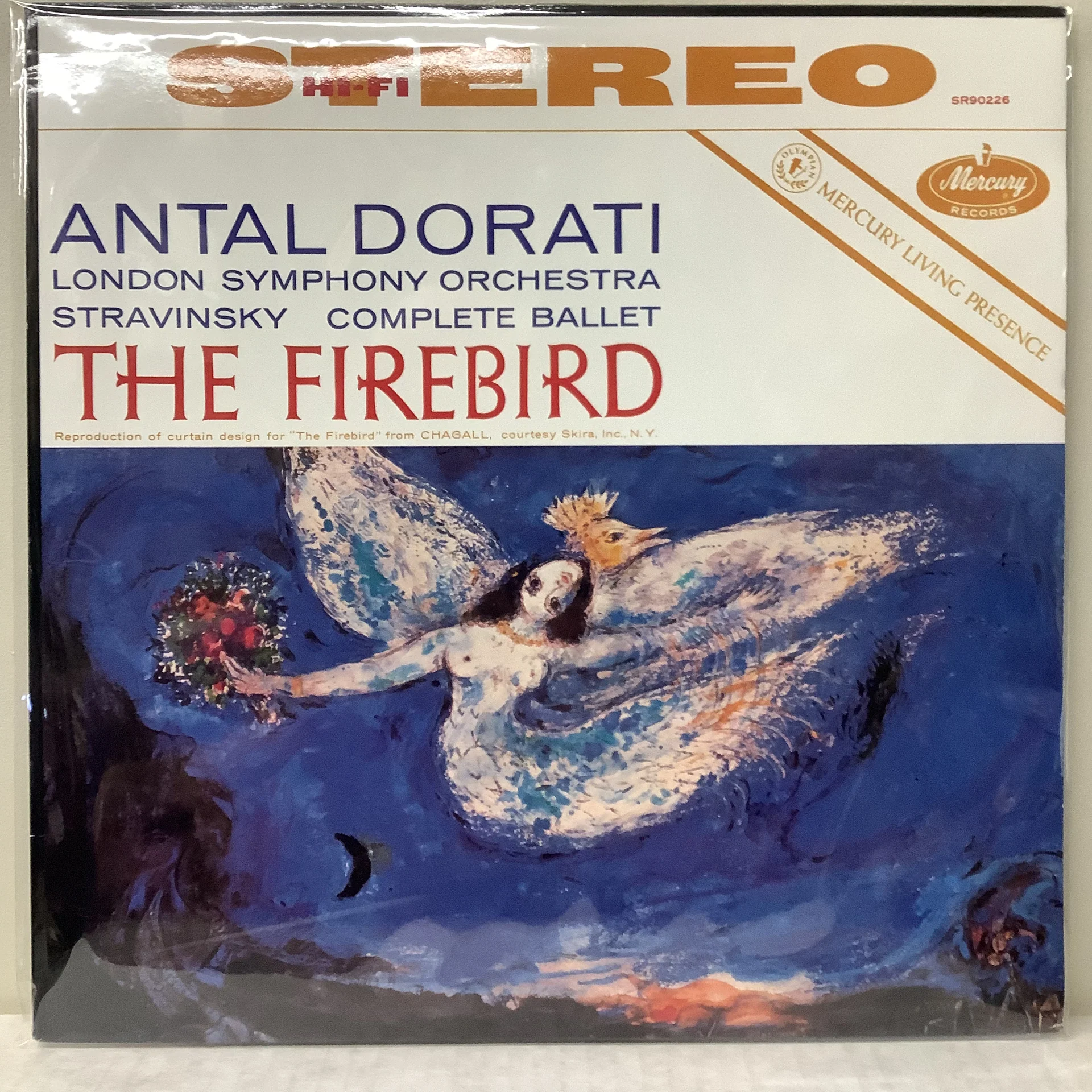
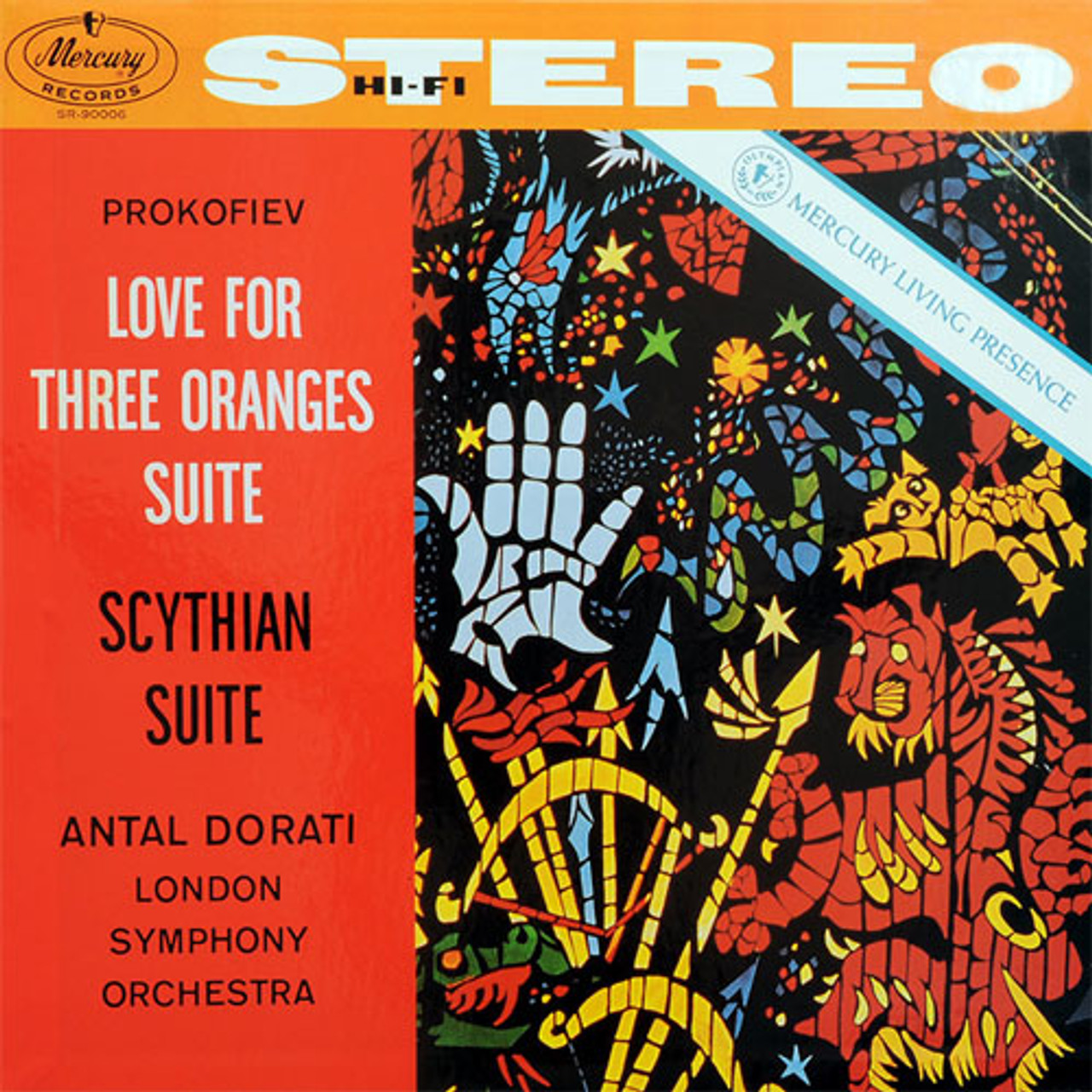
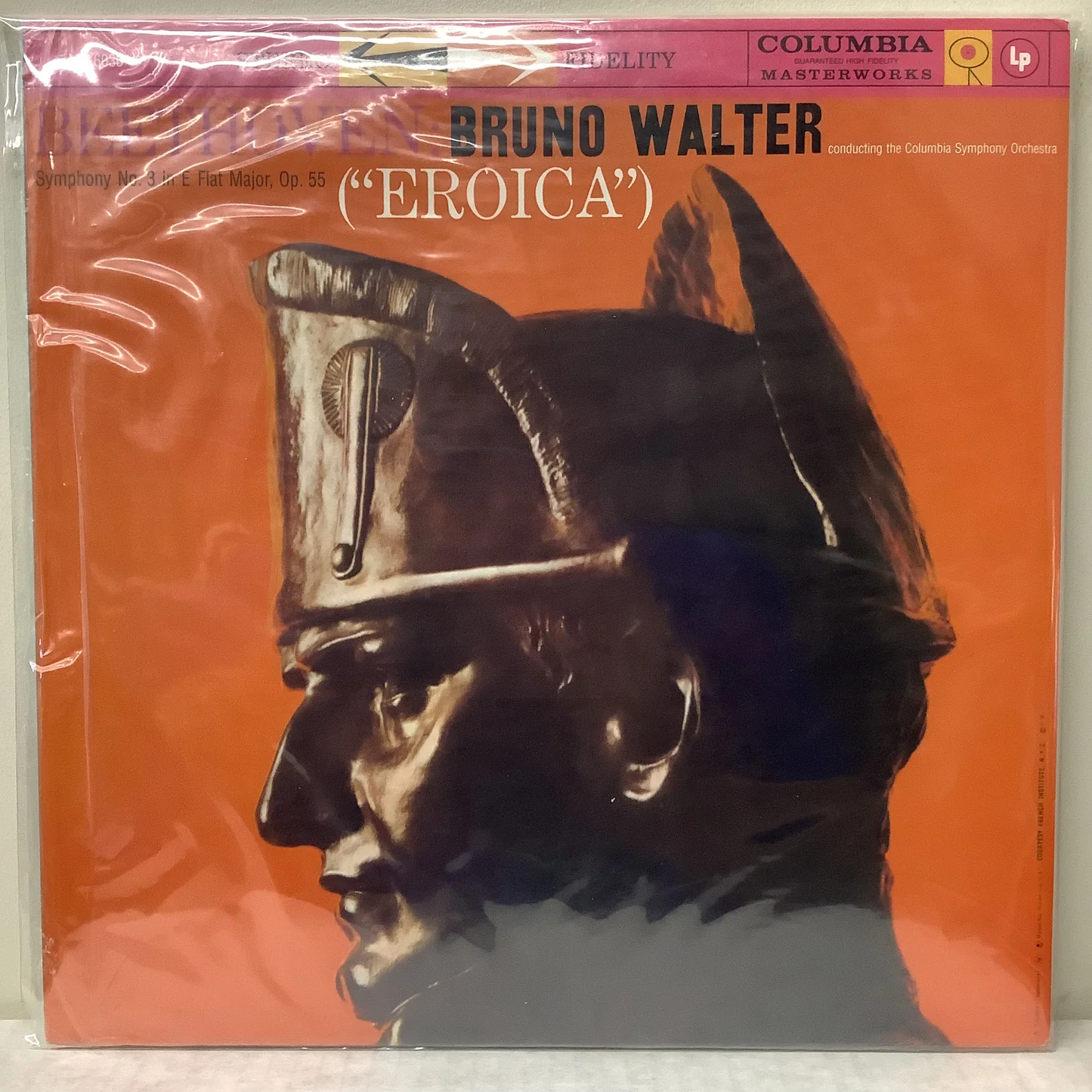
Classic Records was my gateway reissue label, which led me to Speaker’s Corner, Analogue Productions, Alto Analogue, Testament, King Super Analogue etc. It was the easiest way to acquire many classic vintage releases from RCA, Mercury, Decca, EMI etc. at a reasonable price, often in superior sounding pressings (certainly much quieter pressings than the originals).
What these reissue labels all had in common was they were mastered and cut all-analogue directly from the master tapes (or tape copies thereof) by the best mastering and cutting engineers, plated and pressed with care and attention to detail.
Now Classic Records was not the first label to venture into classical AAA vinyl reissues, but it was the first to do so on a scale hitherto unseen, going beyond purely 331/3 LPs to 45rpm cuts, and limited editions on different vinyl formulations - with, admittedly, mixed success in the twilight years of the label.
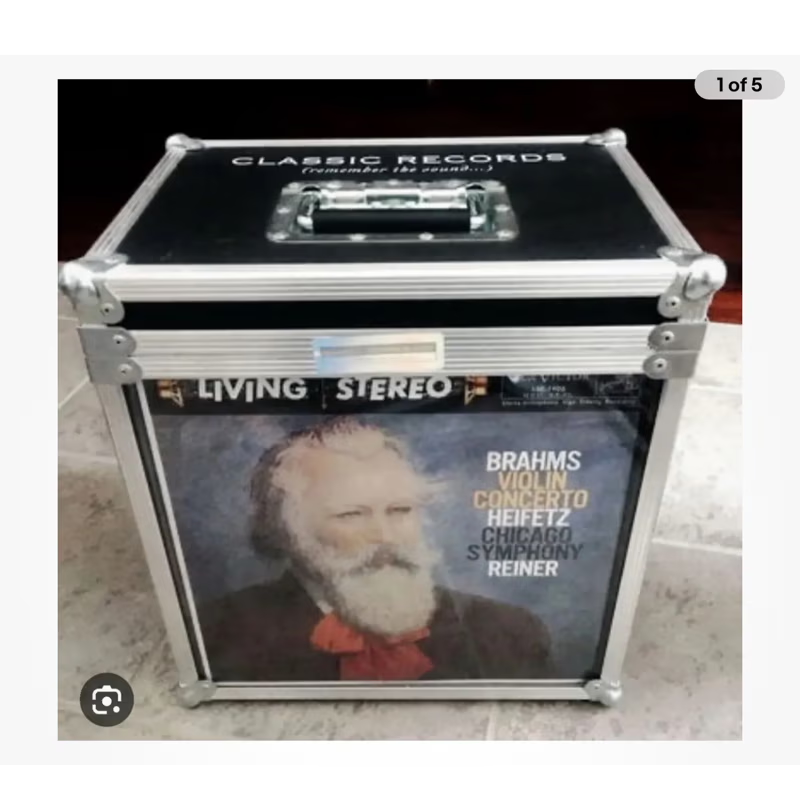 One of the more extravagant releases in Classic's final years: all the Heifetz Living Stereos on 45rpm in a flight case (Led Zeppelin received similarly OTT threatment)
One of the more extravagant releases in Classic's final years: all the Heifetz Living Stereos on 45rpm in a flight case (Led Zeppelin received similarly OTT threatment)
Prior to Classic Records, Chesky Records had reissued many of the most celebrated records in the RCA Living Stereo catalogue (albeit with different artwork), along with a couple of one-off titles (seek out the incredible Fritz Reiner rendering of Brahms’s 4th Symphony with the Royal Philharmonic Orchestra).
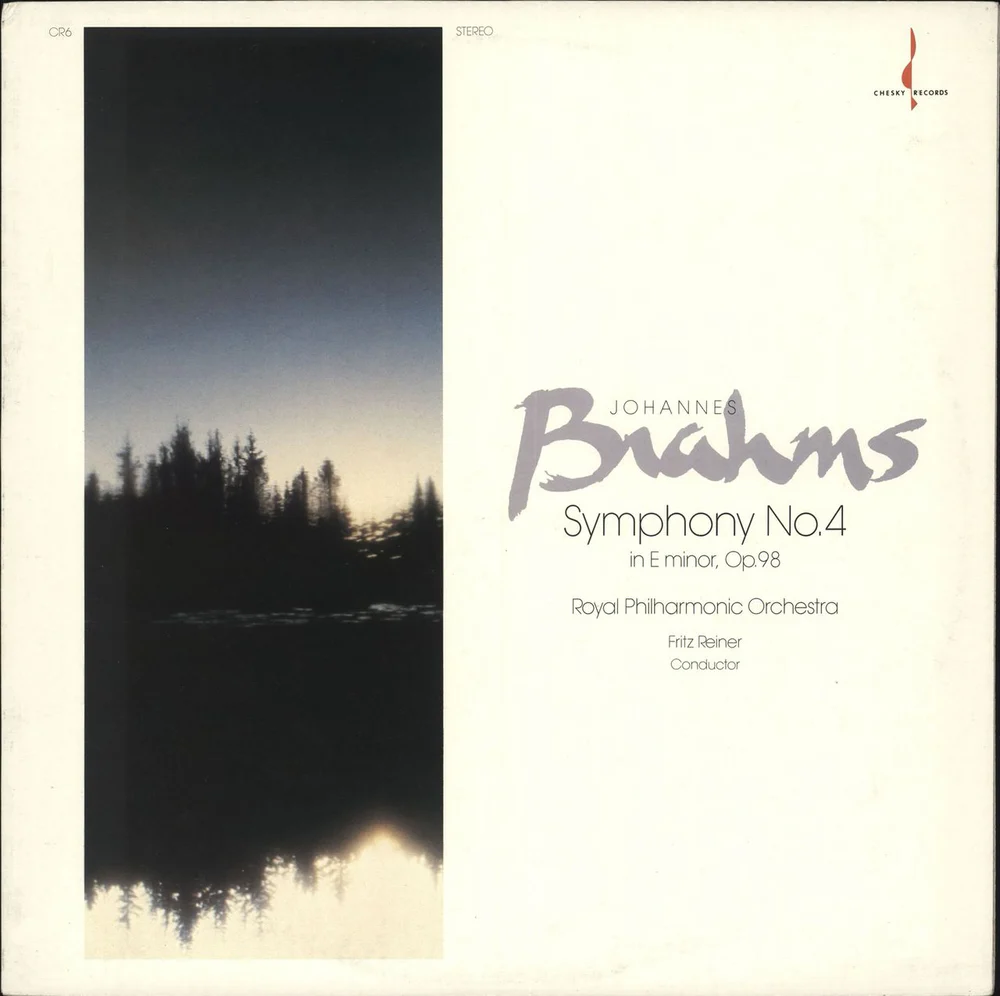
Mobile Fidelity had tackled a number of essential titles from the EMI and Decca catalogues, although with changes in EQ that weren’t to everyone’s taste. (Not such a problem for me in the handful of titles where I own originals and MoFi reissues).
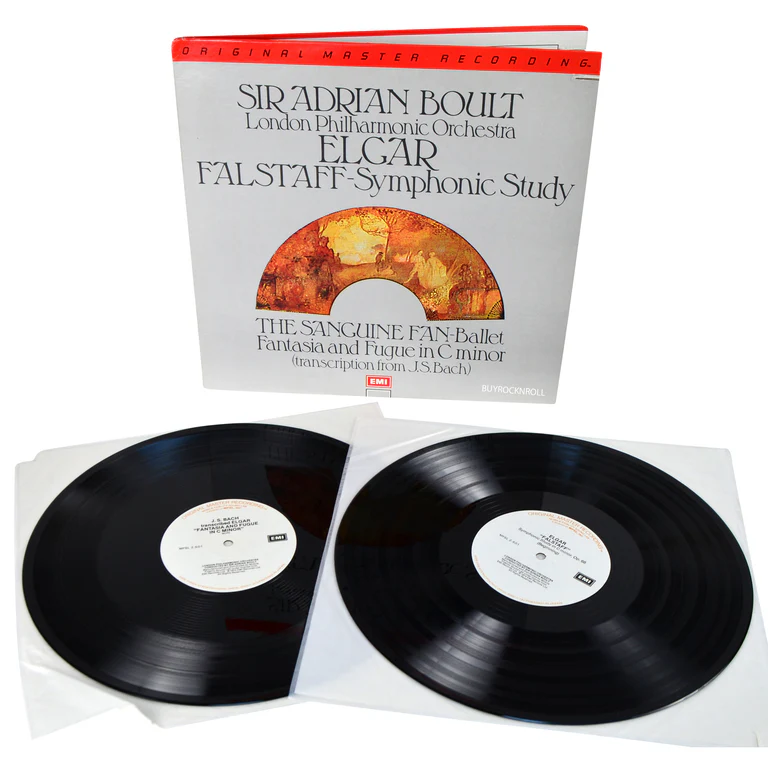
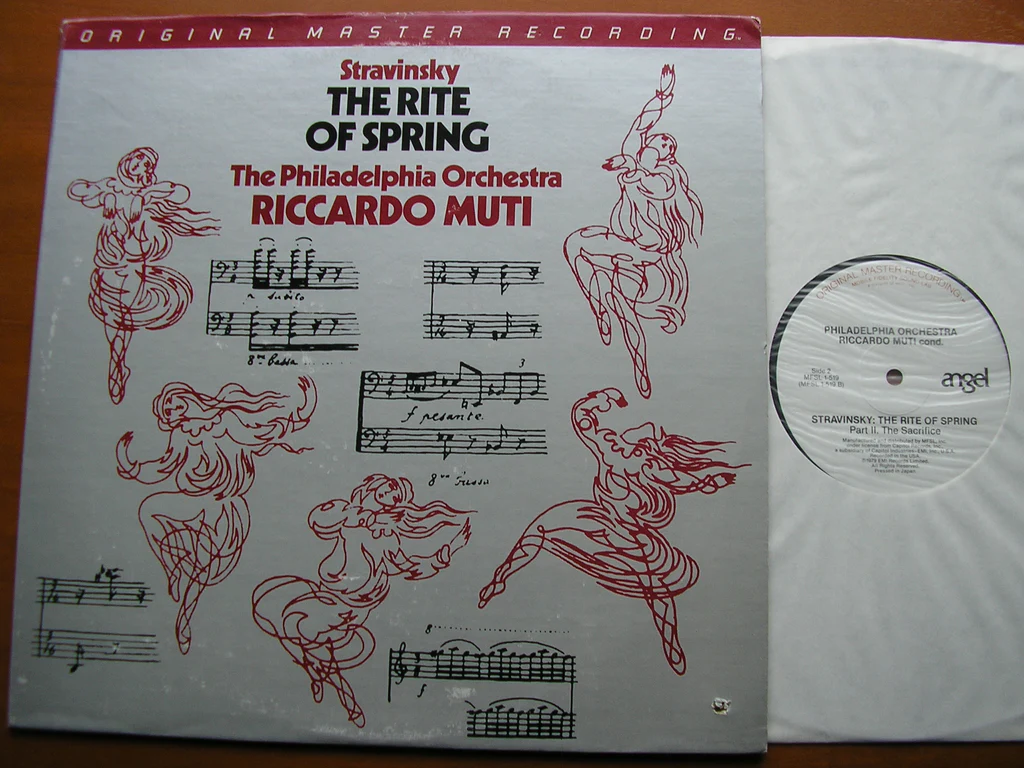 Two of my favorite Mobile Fidelity classical reissues
Two of my favorite Mobile Fidelity classical reissues
One of my favorite reissue labels from the 90s is King Super Analogue Disc, originally out of Japan, but latterly pressed at RTI and distributed by Cisco here in Southern California. I recall a memorable visit to their headquarters when Robert Pincus “forced” me to leave with a clutch of titles. I still obsessively collect their Decca/London reissues - and so should you! They sound amazing.
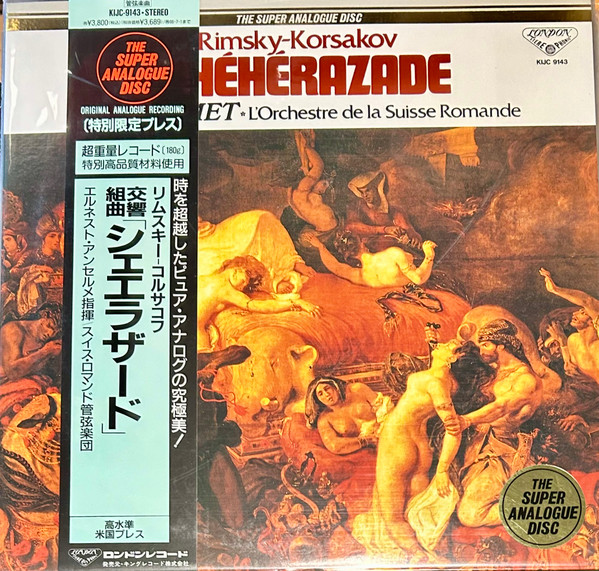
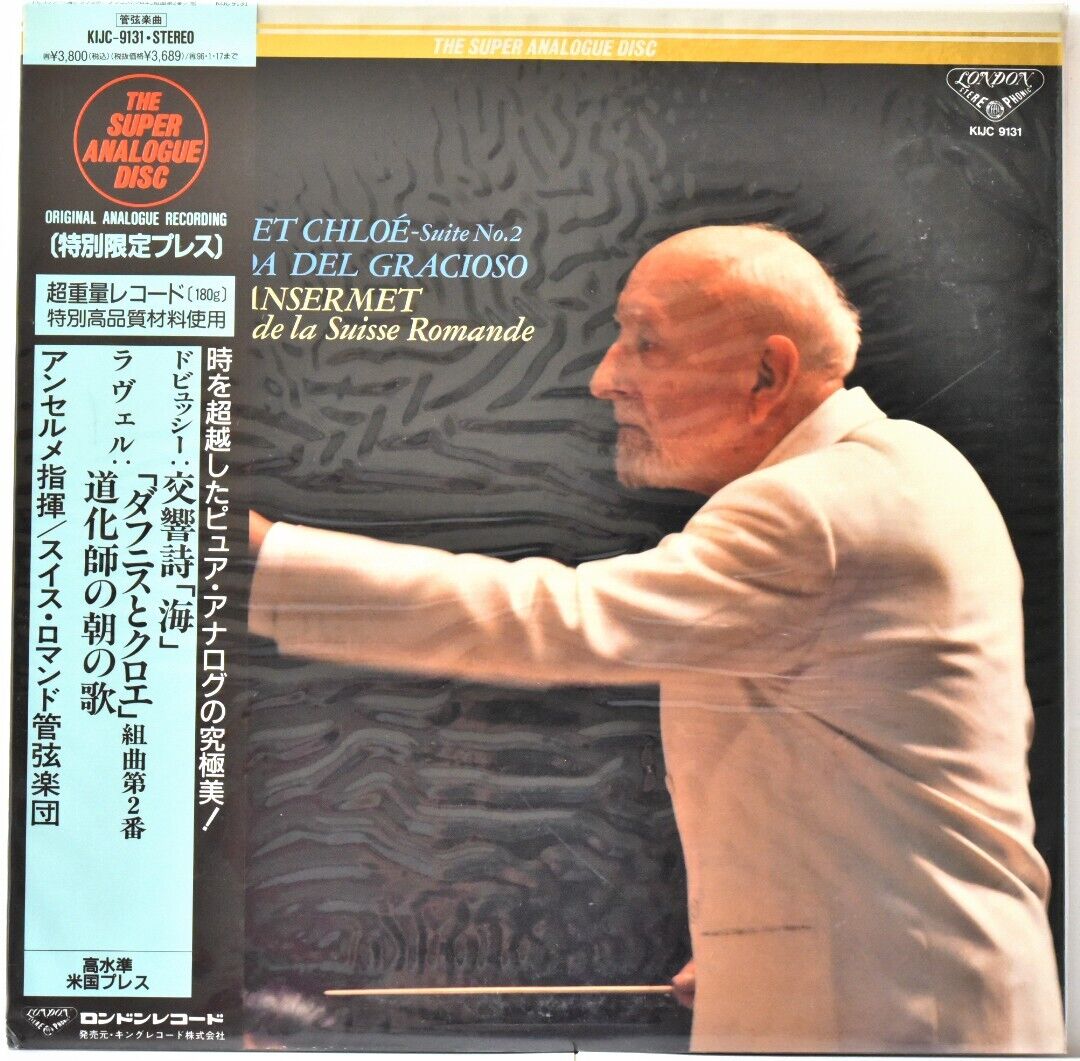 Unlike Speaker's Corner (which reissued many of the same titles), King Super Analogue never licensed the original LP artwork.
Unlike Speaker's Corner (which reissued many of the same titles), King Super Analogue never licensed the original LP artwork.
Another favorite is Alto Analogue, which was the joint project of Ying Tan (formerly Mike Hobson’s partner at Classic Records) and the late Joachim Bose's Alto High Fidelity) . Alto focused on the Decca and EMI catalogues with some slightly less obvious titles. Standouts include several superb André Previn 70s records…
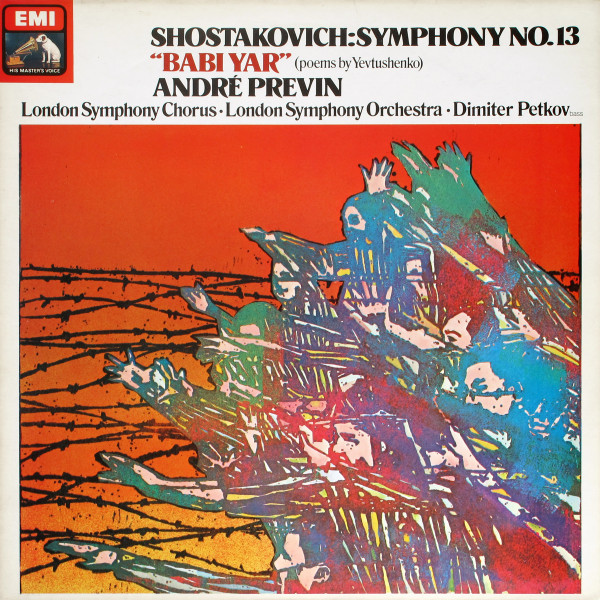 Spread to 3 sides for the Alto reissue, this is a sonic spectacular - not the easiest of music to listen to, but more than worth the effort
Spread to 3 sides for the Alto reissue, this is a sonic spectacular - not the easiest of music to listen to, but more than worth the effort
… and that stunning Ataúlfo Argenta box I mentioned earlier, bringing together this young wunderkind conductor’s early Spanish catalogue from the 1950s (he died tragically young in 1958).
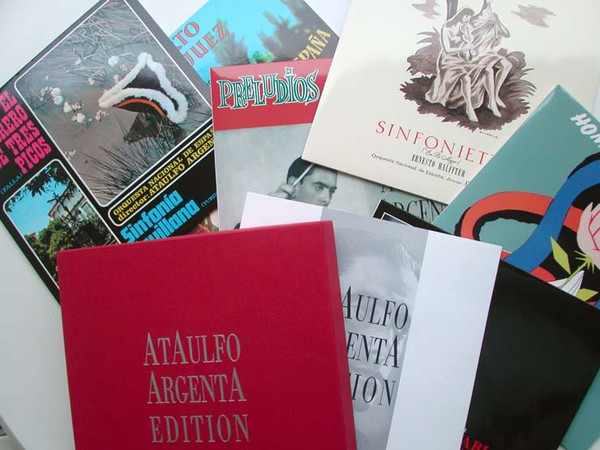
In the early 1990s, Chad Kassem’s Analogue Productions had begun dipping its toe into the classical waters with a series of fine reissues from the Vanguard label - all worth acquiring.
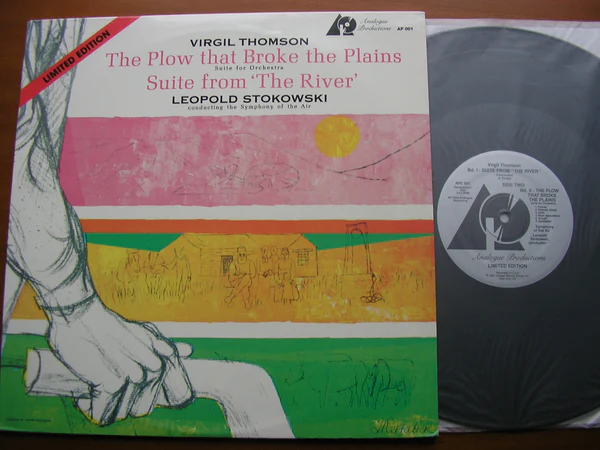
When Mike Hobson decided to sell Classic Records, Chad bought out the company and began to do his own reissues of the RCA Living Stereo catalogue, using fresh masterings by Ryan K. Smith. Analogue Productions' Living Stereo reissues are deluxe items compared to the Classic versions, with heavier card, Stoughton printing etc. The Solti/Venice release is a real standout...
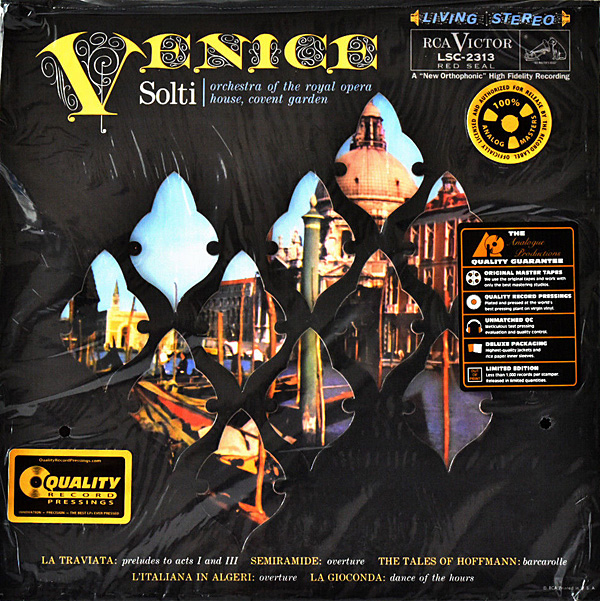
Chad also did 45rpm versions of Classic’s Everest catalogue...
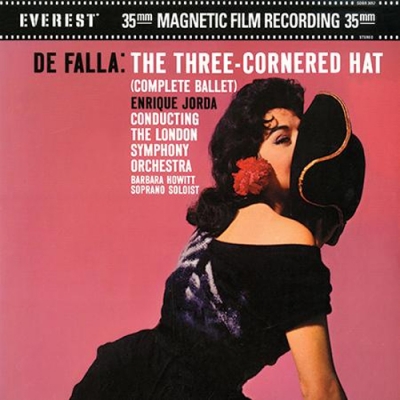
... adding to the small number of Everest titles DCC (the pioneering imprint of Marshall Blonstein, with mastering by Steve Hoffmann and cutting by Kevin Gray) had put out in addition to their mainly rock and jazz reissues. Blonstein later started the Audio Fidelity label.
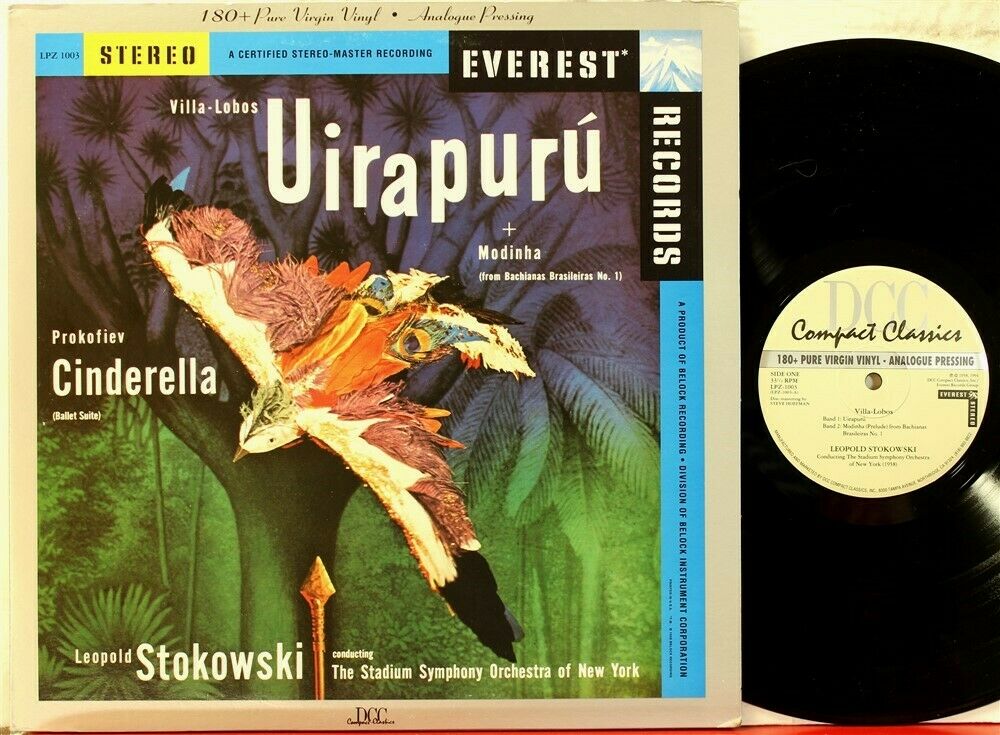
However, AP did not re-release the handful of Classic Mercury titles, all of which are sonic spectaculars. Instead, Chad added a couple of his own Mercury titles, including the famous Janos Starker recording of the Bach Unaccompanied ‘Cello Suites in a deluxe set, cut at 45rpm.
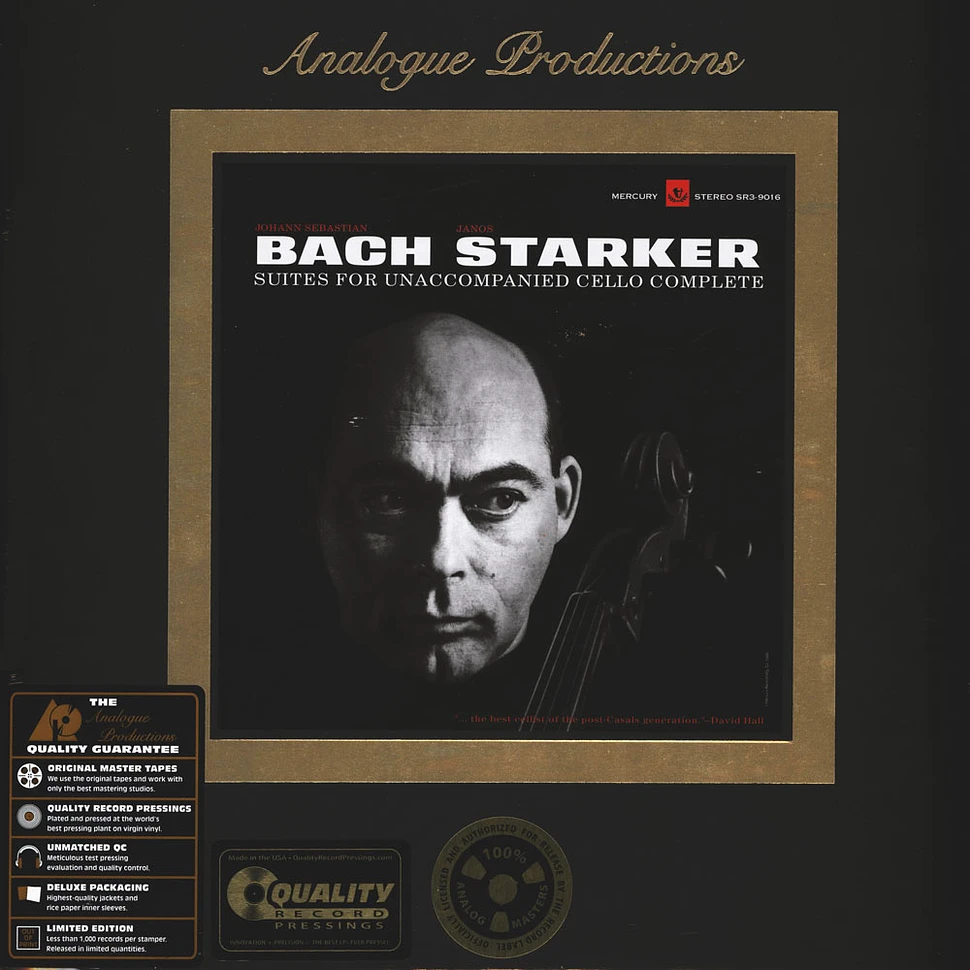
A personal favorite of mine in the AP catalogue is this LP by Nathan Milstein, and this record is one of the most stellar-sounding in my entire collection. If you don't own it already, it's time to head over to the Acoustic Sounds website...
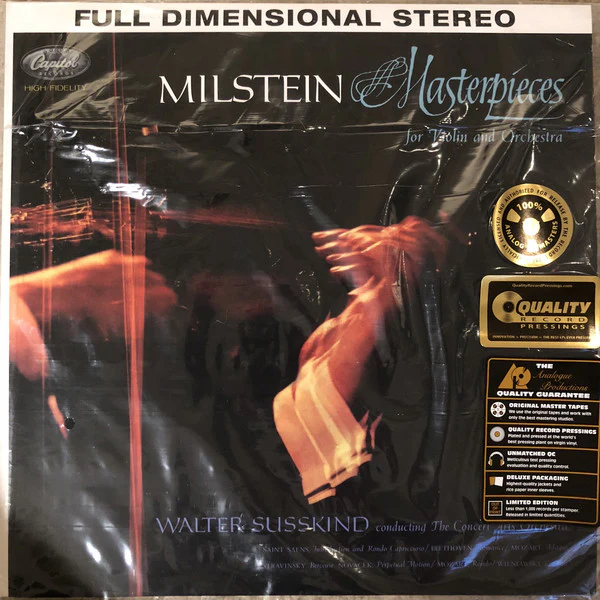
Meanwhile, over in Europe, Speaker’s Corner carried the torch for the Decca, DG and later the CBS and Philips catalogues. Their reissues of the highly sought-after 50s and 60s Decca titles were really the only way to obtain legendary recordings by the likes of Ernest Ansermet at a reasonable price, and they sounded excellent. Their reissues of DG titles were significant sonic upgrades, though eclipsed later by the Original Source versions (in the case of 1970s titles).
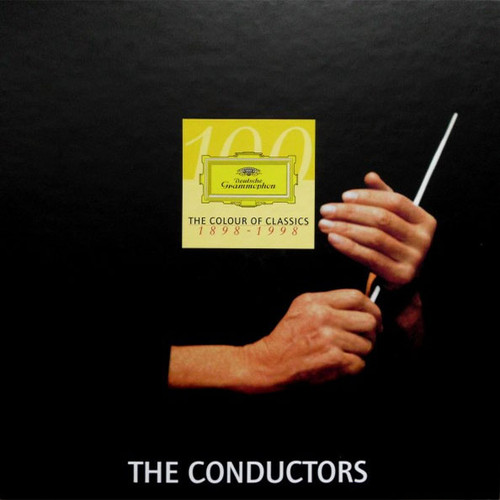 One of a series of slipcased 3LP sets that Speaker's Corner released of key DG recordings dating from the 1950s to the 1970s.
One of a series of slipcased 3LP sets that Speaker's Corner released of key DG recordings dating from the 1950s to the 1970s.
One of my most prized Speaker's Corner sets is this one, containing 3 albums:
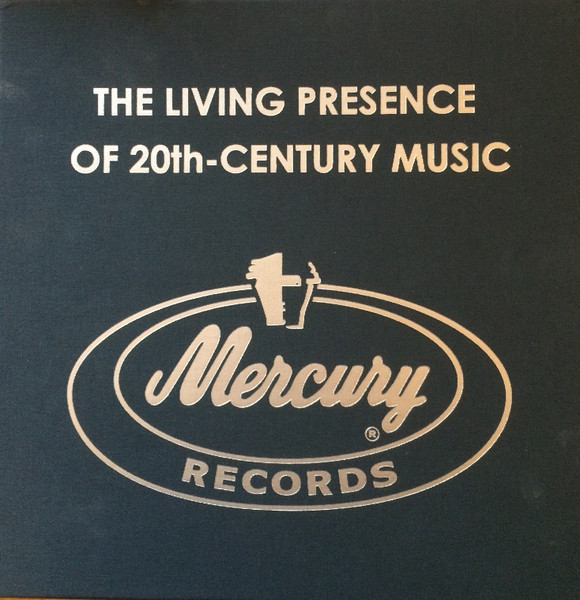
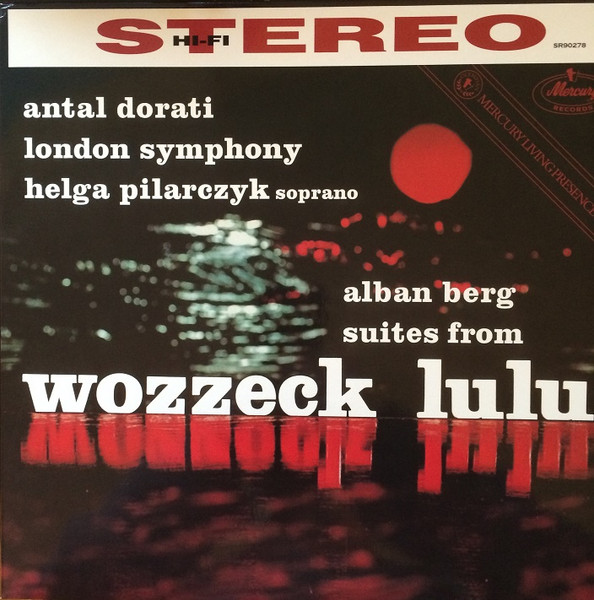
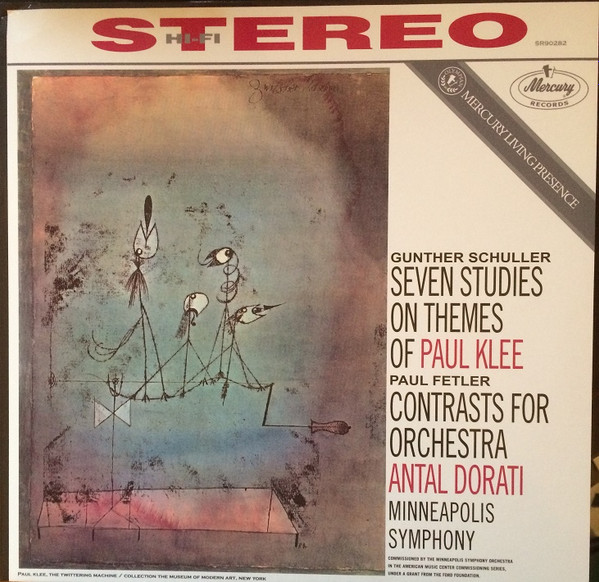
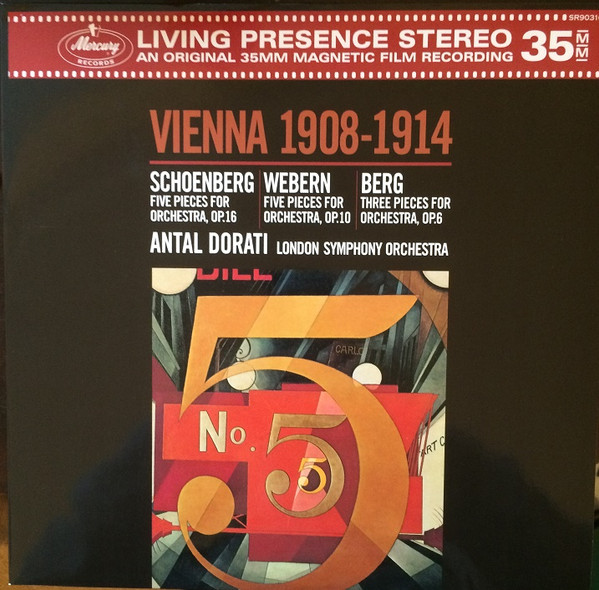
During the last few years of Speaker’s Corner’s classical heyday, Kevin Gray remastered a clutch of CBS (now Sony) albums which demonstrated that those master tapes were much better-sounding than even the cleanest 1-eye pressings would have you believe. (A fact further confirmed by the superb-sounding series of CD box sets Sony has been releasing in recent years).
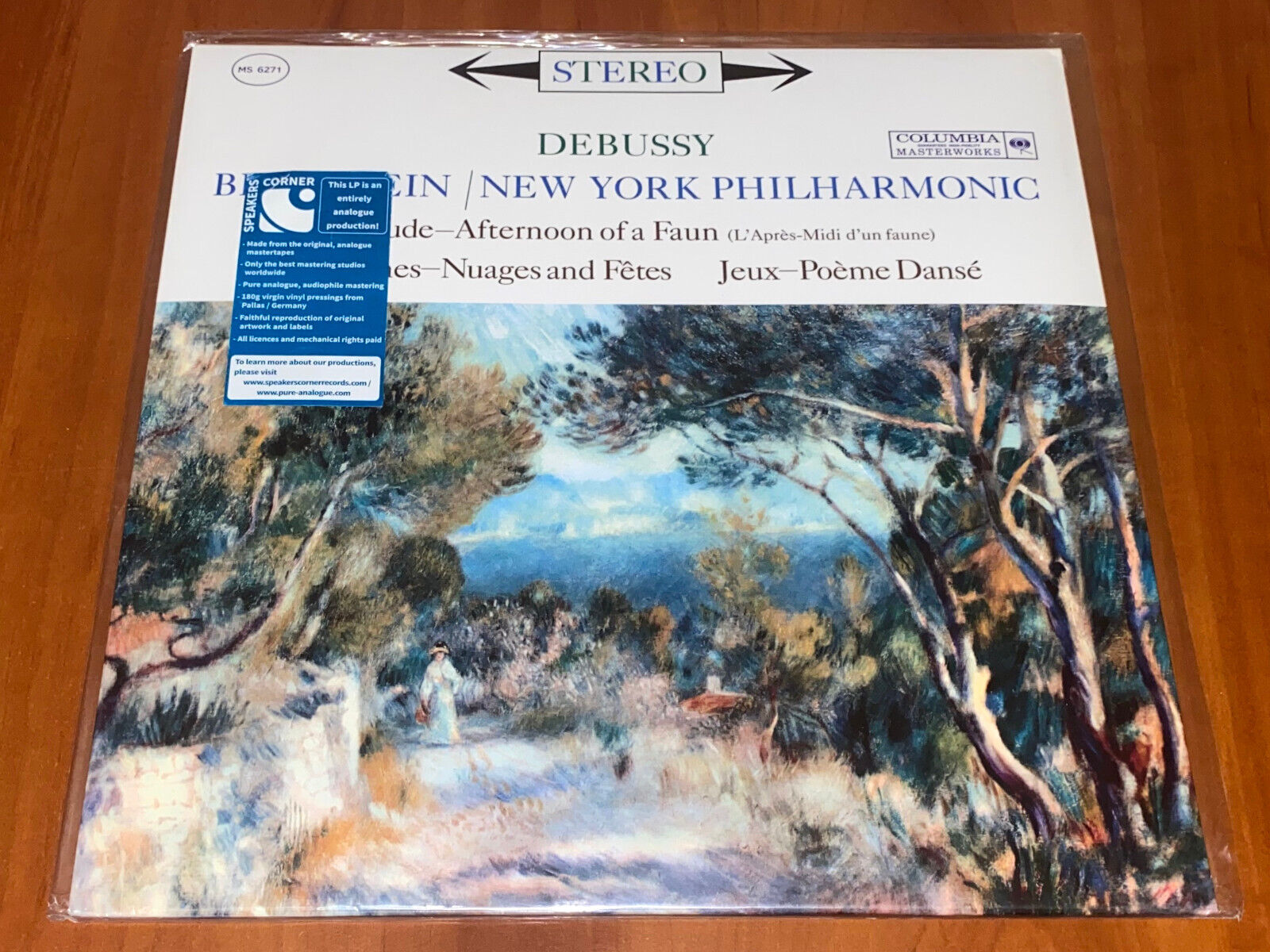 One of my favorites of the Speaker's Corner Columbia reissues
One of my favorites of the Speaker's Corner Columbia reissues
EMI’s Testament imprint similarly focused mainly on the label's vintage 1950s/60s catalogue for a series of fine reissues which again allowed collectors to pick up titles at a reasonable price when OG prices were reaching into the stratosphere. I will particularly mention here the series of Carl Schuricht Bruckner Symphony recordings, all essential purchases for the Bruckner enthusiast.
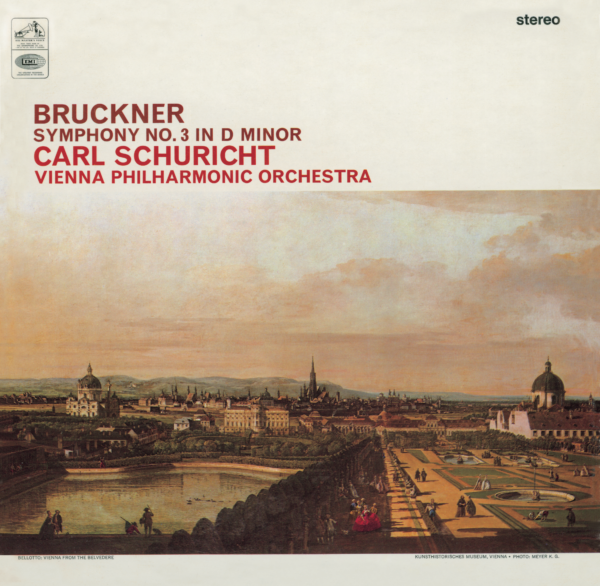
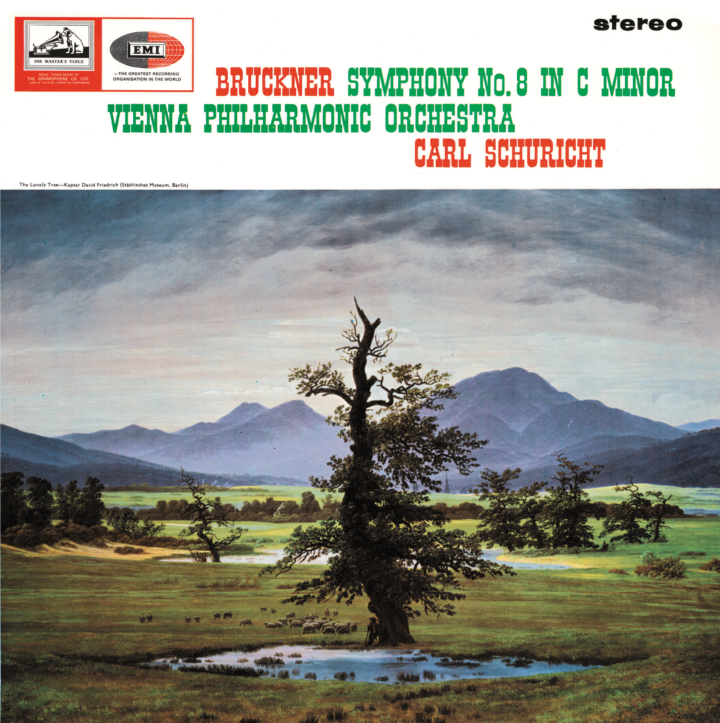
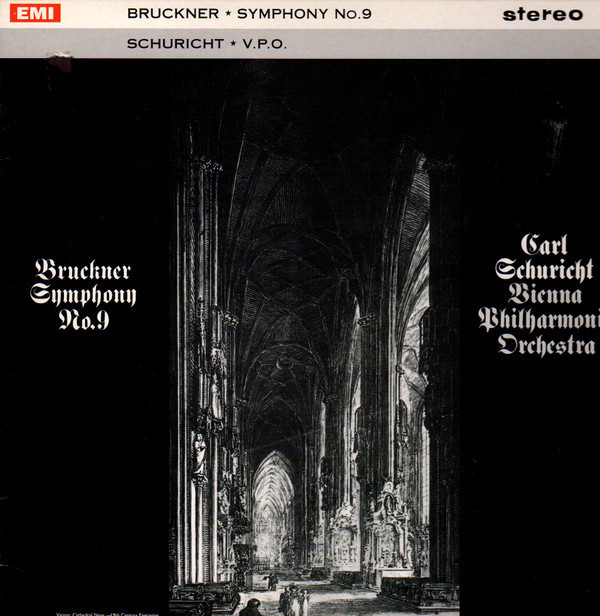
Meanwhile ORG Music, releasing Bernie Grundman cuts of Decca/London titles exclusively on perfect 45rpm pressings, produced only a smattering of records - but all highly desirable.
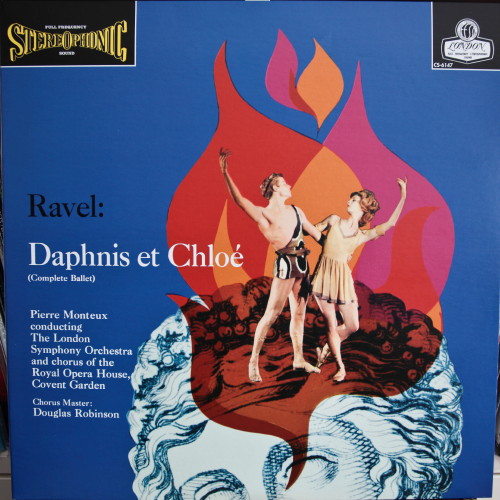
(Several long-announced titles, like the Bernard Herrmann RCA Classic Film Score outing - a stunning record in its OG form - have never materialized, alas).
In South Korea, Analogphonic began releasing some prized titles which, while pressed beautifully, were not always transparent as to whether they were mastered from the master tapes or a digital file (and some were digital recordings to start off with).
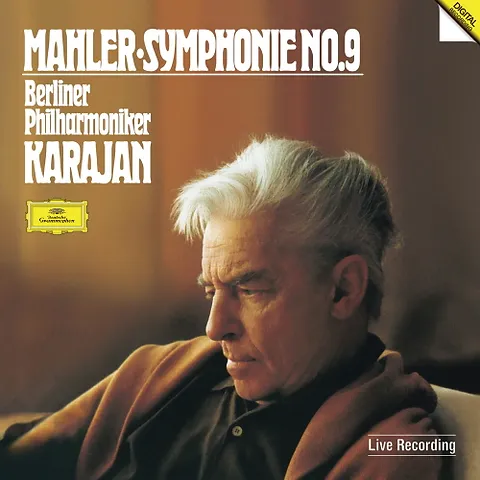
OBI strips were sometimes more forthcoming:
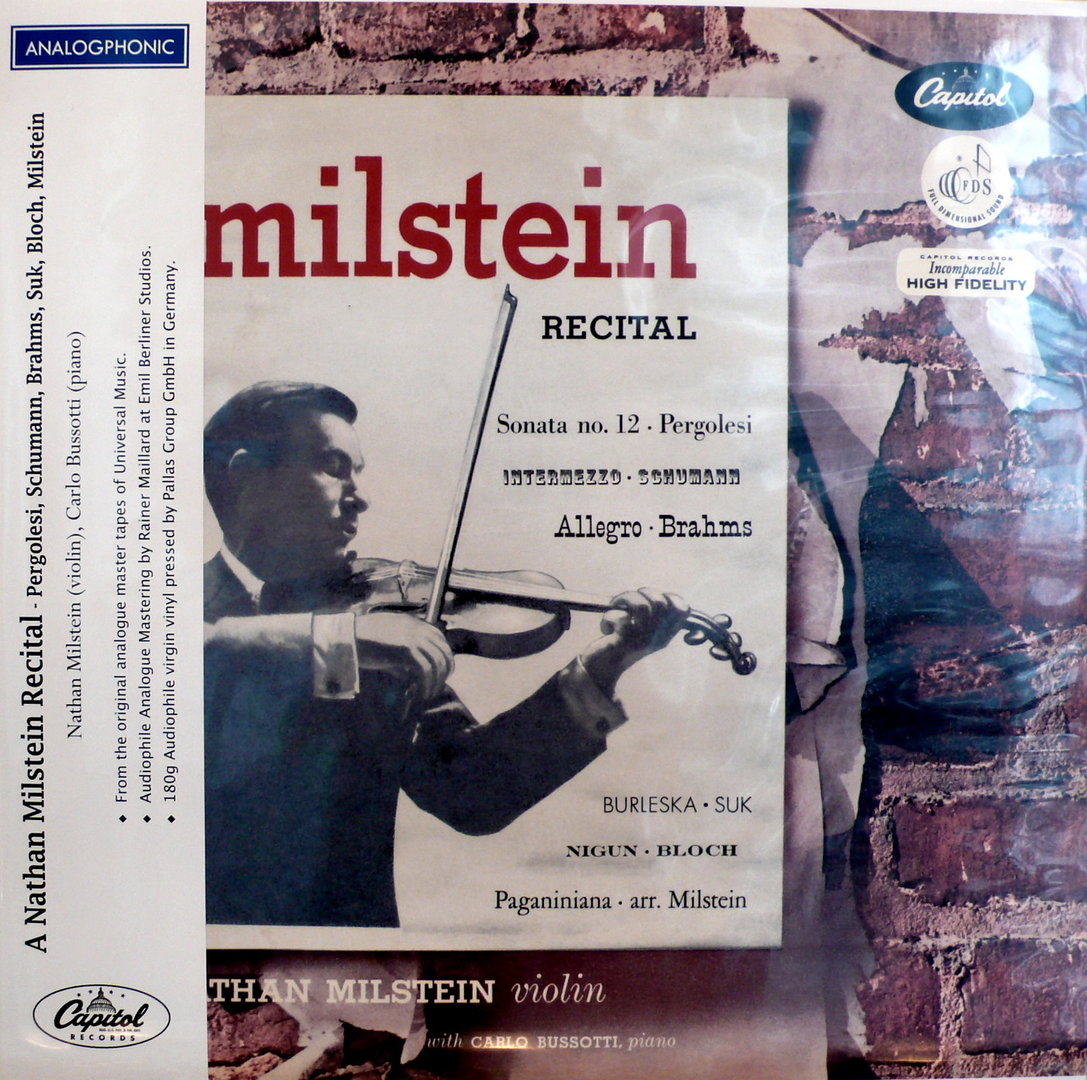
Many of these were cut by Emil Berliner Studios, who also began to cut limited vinyl editions of certain key 60s DG titles for the label. Occasionally, Analogphonic and DG vinyl releases of this period were from the same metalwork.
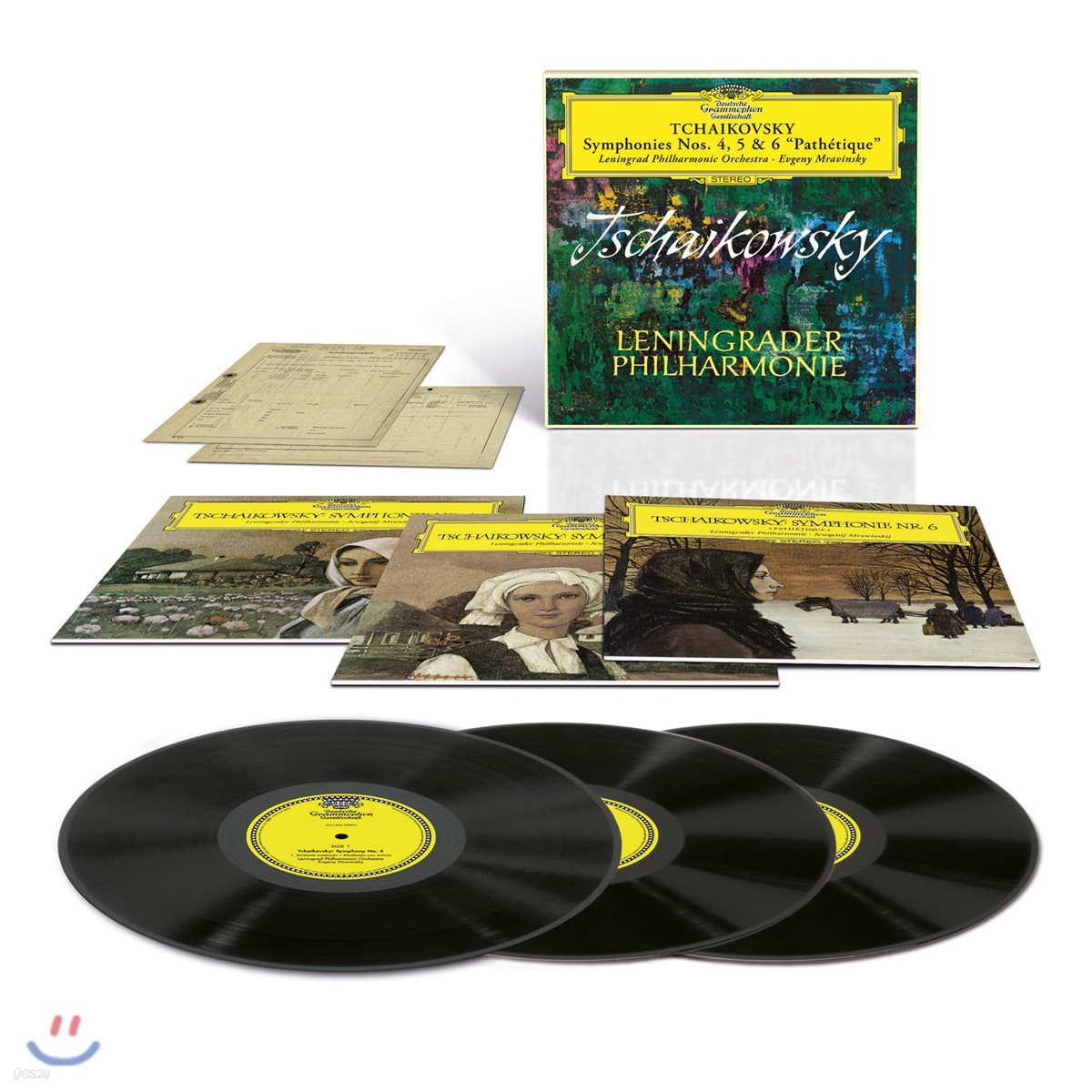 The DG reissue of Mravinsky's seminal Tchaikovsky recordings from the 1960s
The DG reissue of Mravinsky's seminal Tchaikovsky recordings from the 1960s
Again, some ambiguity of provenance prevailed, although I suspect a decent percentage of these were indeed AAA. (Latterly Rainer Maillard told me he started to indicate if a cut was AAA in the lead-out groove for both labels).
I have a handful of Analogphonic and DG vinyl reissues form this period and I will say that the sound is always excellent. The EBS Half-Speed mastered version of the complete Beethoven ‘Cello Sonatas with Pierre Fournier and Friedrich Gulda is my new reference in these works (pace the excellent Speaker’s Corner AAA reissue of the Philips Rostropovich/Richter set).
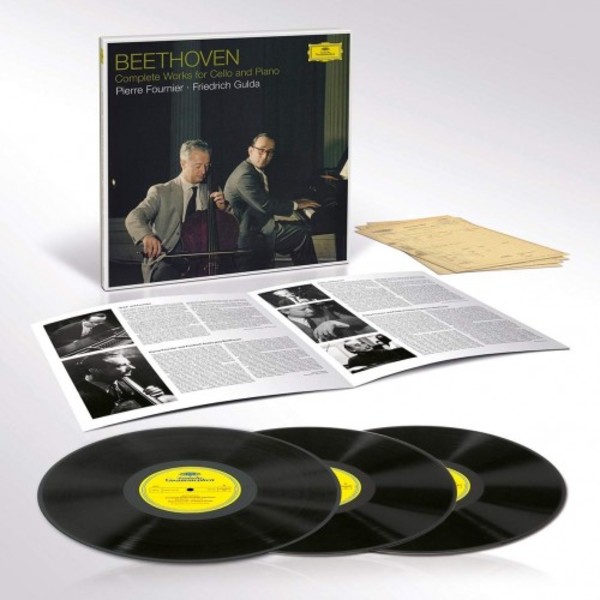
There were numerous other smaller labels that did noteworthy AAA reissues. Some quick mentions here of Klavier for its series of fine EMI reissues, including several choice Louis Fremaux titles with the City of Birmingham Symphony Orchestra. These still show up sealed in the used bins and are mandatory purchases.
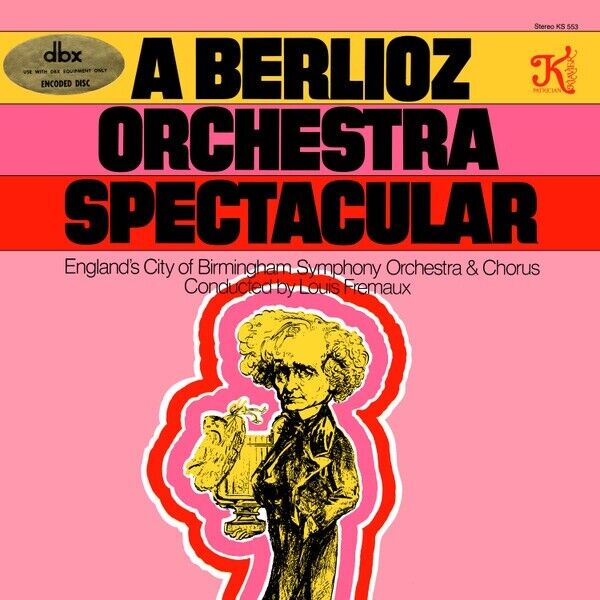
Also, Reference Recordings took the occasional detour from its own original recordings to lovingly remaster (via Doug Sax) and reissue some choice titles from the Vox catalogue, including these brilliant Gershwin albums by Leonard Slatkin with the St. Louis Symphony Orchestra….
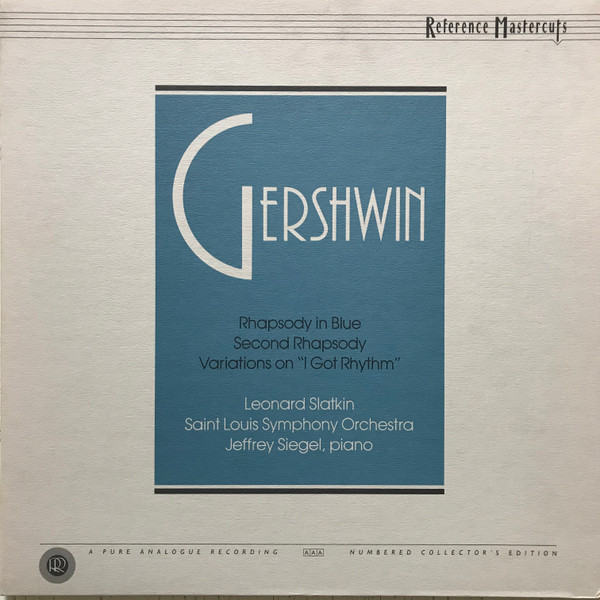
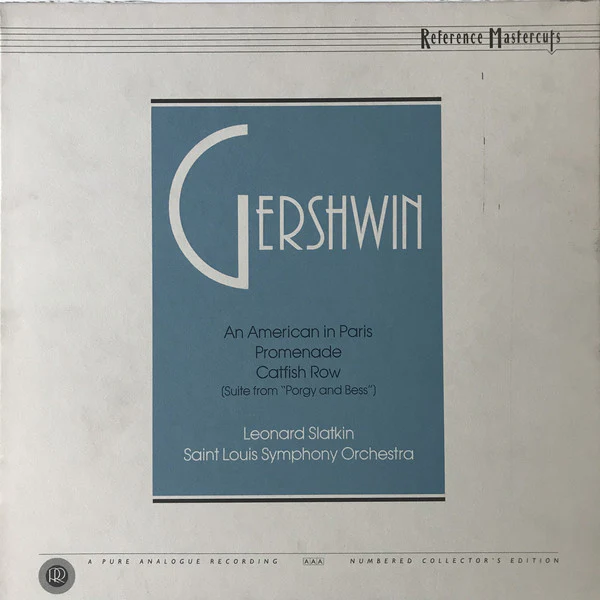
So, as you can see, the reissue market for classical vinyl - albeit limited - was thriving into the mid-2010s. But then something odd began to happen. And the timing was even odder…
… to be continued in Part 2


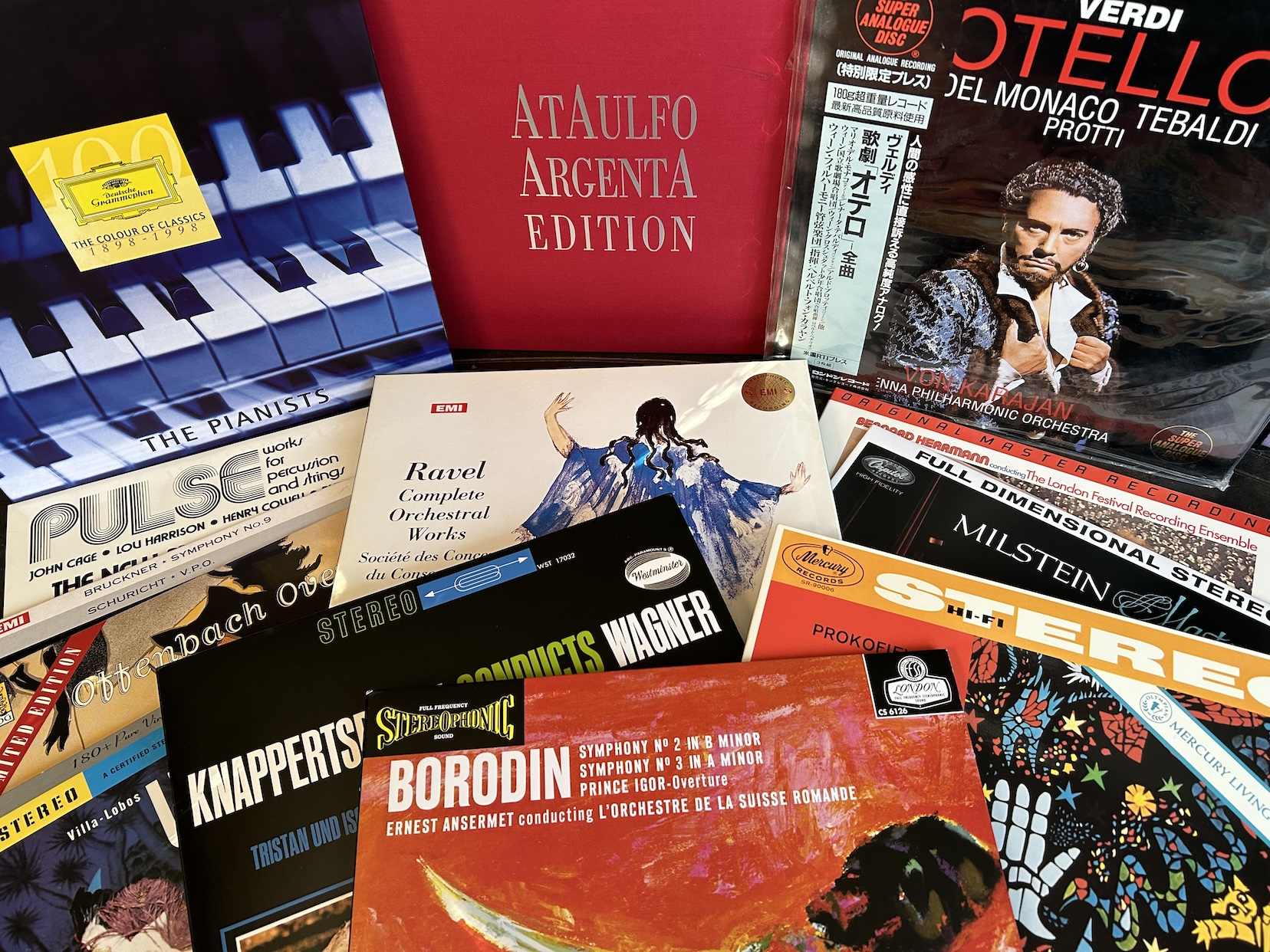


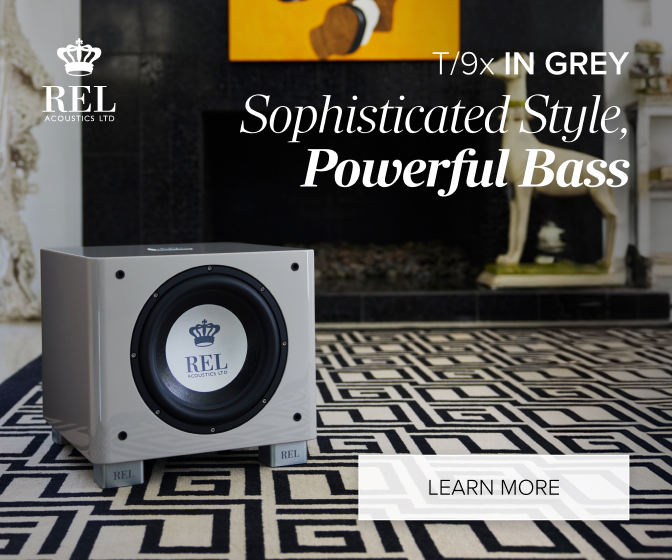

































.png)








